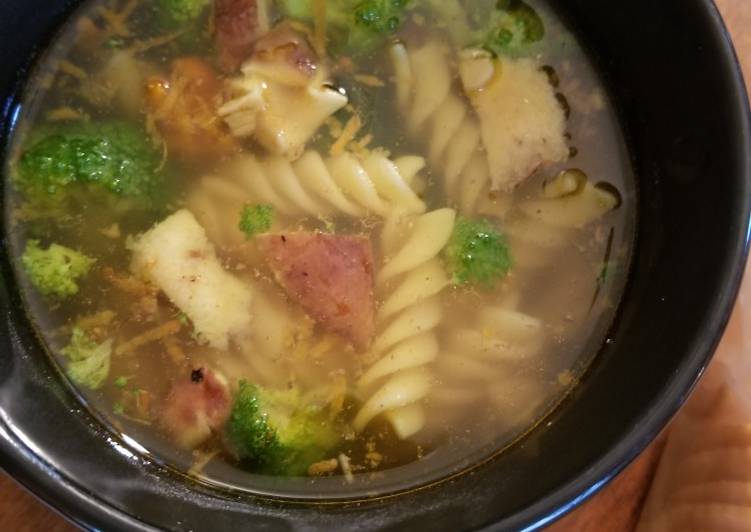Shiitake Mushroom & Broccoli Rainy Day Soup. Shiitake mushrooms are one of the most popular mushrooms worldwide. They are prized for their rich, savory taste and diverse health benefits. Compounds in shiitake may help fight cancer.
 Shiitake mushrooms (Lentinula edodes) are a savory ingredient that are popular in Asian cuisine.
An extract made from this mushroom is used as medicine.
Shiitake mushroom is used to boost the immune system and to treat HIV/AIDS, common cold, flu.
You can cook Shiitake Mushroom & Broccoli Rainy Day Soup using 9 ingredients and 2 steps. Here is how you cook it.
Shiitake mushrooms (Lentinula edodes) are a savory ingredient that are popular in Asian cuisine.
An extract made from this mushroom is used as medicine.
Shiitake mushroom is used to boost the immune system and to treat HIV/AIDS, common cold, flu.
You can cook Shiitake Mushroom & Broccoli Rainy Day Soup using 9 ingredients and 2 steps. Here is how you cook it.
Ingredients of Shiitake Mushroom & Broccoli Rainy Day Soup
- It's of Shiitake Mushrooms, chopped.
- You need of Broccoli Florets, chopped.
- You need 1 of large box Chicken Stock.
- You need of Rotini Pasta, cooked & drained.
- It's of Agave Syrup.
- You need of Turmeric, grated.
- It's of Vindaloo Curry Powder.
- It's of Chili Pepper.
- Prepare of Coconut Oil.
The shiitake mushroom is a favorite of those who prefer a meaty, rich-flavored mushroom. Originating from Asian countries, primarily Japan and Korea, this variety was once gathered mainly in. Shiitake mushrooms have it all: beauty, great taste, and a host of health benefits that everyone What comes to mind when you think of shiitake mushrooms? Do you ponder how the health benefits.
Shiitake Mushroom & Broccoli Rainy Day Soup instructions
- Stir fry mushrooms and broccoli in coconut oil with grated turmeric over medium heat until broccoli vibrant green..
- In a large stock pot, simmer chicken stock, veggies, and spices until heated through. Add agave to taste. Serve ♥️.
Flavorful, earthy, shiitake mushrooms are next commonly cultivated types after button mushrooms. Originally, Shiitake are the fruiting bodies found on dead. Shiitake Mushrooms Are Food, but Know the Risks. Consuming lentinan in the form of whole shiitake mushrooms is relatively safe, although mild side effects like skin inflammation, upset. Pronounced shee-TAH-kay, the wide caps of these mushrooms range Shiitake, when translated from Japanese, refers to the shii tree on which these mushrooms.